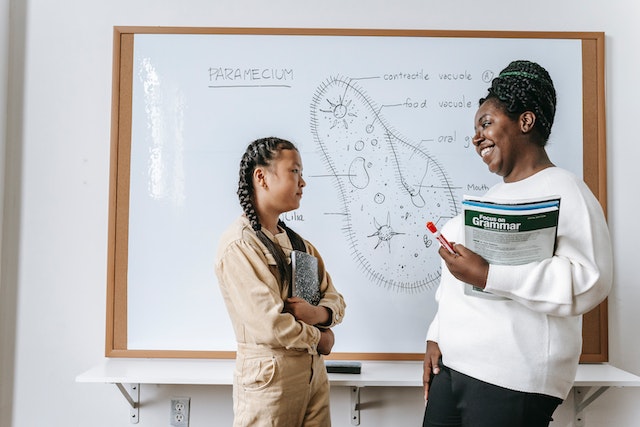MEANING
According to Cambridge Dictionary “a word which refers to a person, place, thing, event or a substance or quality,” is known as a Noun.
A note to keep in mind is that nouns can come in the form of a subject or the object of a sentence too.
Here is an example:
Angela eats chocolate
Here, the action verb is ‘eats’. ‘Angela’ is a person who is performing the action of eating which is why the subject of the sentence will be ‘Angela’
The statements’ direct object is the particular word which has the action or the effect of the verb. In the above example, the noun ‘chocolate’ is being affected by ‘eats’ which is a verb. Hence, ‘eats’ is the direct object in the example.
Nouns help us to express who, what and where we are speaking about.
TYPES OF NOUNS
COMMON NOUN:
A person, place, or a thing will come under the category of a Common Noun.
Let’s take a look at how you shall use common nouns in a sentence.
- The woman is in the bus.
- This cartoon is awesome.
- It’s hot in the warehouse.
- My baby likes to sit on the couch.
- Do you think the dog enjoys eating fruits?
- I want to purchase that chocolate for my friend.
- Vanilla coffee is my favorite.
- It’s breezy in the garden.
- Are you up for a dive in the swimming pool?
- The man is always on his laptop.
PROPER NOUN:
A particular name that is given to a person, place, or a thing falls under the Proper Noun. It is essential to capitalize the Proper Noun, even if it falls between the sentence. Proper Nouns give more information than Common Nouns.
Let’s look at some of the examples of proper nouns and how to use them:
- John lives in Mumbai.
- Catherine watered the plants in the Community Garden.
- “The Office” is my favorite series.
- Does it always rain in August?
- Jim goes to Marks and Spencer every month.
- Let’s take Jojo to the garden every Friday.
- Narendra Modi is the current Prime Minister of India.
- My parents took the Rajdhani express to Rajasthan.
- Should we meet at the Galaxy restaurant for dinner on Saturday?
- Prerna lives in England.
CONCRETE NOUN:
Concrete Nouns are things that can be seen, touched, tasted, heard or smell.
Let’s look at some of the examples of concrete nouns and how to use them:
- Amitabh Bachchan is a brilliant actor.
- What’s your favorite music?
- My friend just made some lip-smacking chocolates.
- I always drink some water after getting up from the bed in the morning.
- Don’t forget to bring a carry bag to the college.
- Psychology is Pam’s favorite subject.
- India is a diverse country.
- The Taj Mahal is in the city of Agra.
- Dwight lived in a condo in San Francisco.
- Mukesh Ambani is a big businessman.
ABSTRACT NOUN:
An abstract noun is the opposite of Concrete Noun. It is something that cannot be seen, touched, tasted, heard or smell. Abstract Nuns refer to the qualities, concepts, and feelings.
Let’s look at some of the examples of abstract nouns and how to use them in sentences:
- Amber loves Jim.
- George is full of anger today.
- Parents have a lot of responsibilities.
- Flying first class is a bliss.
- We get thrills while watching a horror movie.
- Have patience.
- I wish to go on a roller coaster ride someday.
- Rumor has it that the actress was in a secret affair.
- Hearing the rain helps me stay calm.
- Going for a walk helps her stay relaxed.
COLLECTIVE NOUNS:
When we group multiple things together, we call it as Collective Noun.
Let’s look at some examples of collective nouns:
- What outfit should I wear to the party?
- A school of fish just fought in the pond.
- Are you joining the group for today’s dinner?
- She got stung by a swarm of bees in the garden.
- The dog gave birth to a puddle of puppies.
- Valencia is the best dancer in that dance group.
- I have been on the topmost team in the sport.
- The army of ants really climbed up the pot.\
- This class is horrible.
- Have you heard that choir?
COMPOUND NOUN:
Compound nouns are made with the help of two or more words.
Here are some examples of compound nouns:
- I love seafood.
- She has a secret boyfriend.
- Many of us love to watch the sunrise in the morning.
- I think you need to purchase earpods.
- She loves to sit by the seashore.
- This restaurant serves delicious breakfast.
- MS Dhoni is a great batsman.
- We have some great indoor games to play tonight.
- Did you complete your homework?
- He takes care of the household chores.
COUNTABLE NOUNS:
Countable Nouns are those nouns that can be counted. They have a singular as well as a plural form.
Let’s look at some of the examples of countable nouns and how to use them:
- Josh and Joan have four dogs.
- I only have 3 pieces of cardboard left.
- We have very few books at home.
- Do you play the piano often?
- This hotel only has 5 rooms.
UNCOUNTABLE NOUNS:
Just as the name says, uncountable nouns are nouns that cannot be counted, which is why they don’t have a plural form. Many abstract nouns fall under the category of uncountable nouns.
Let’s take a look at some of the uncountable nouns:
- Coffee contains caffeine.
- This room is full of dust.
- Don’t take advice from a cat.
- Food can buy you happiness.
- The grass is greener today.















